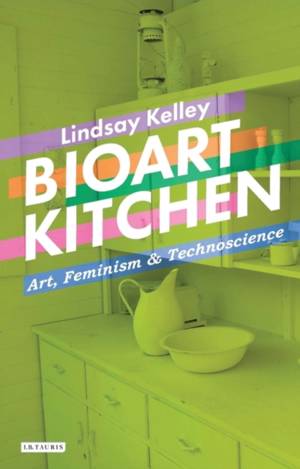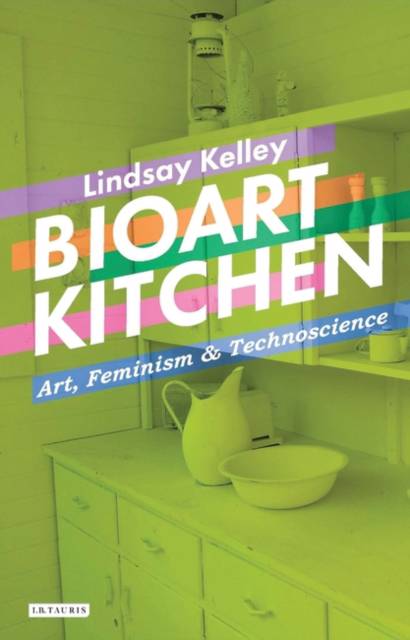
- Afhalen na 1 uur in een winkel met voorraad
- Gratis thuislevering in België vanaf € 30
- Ruim aanbod met 7 miljoen producten
- Afhalen na 1 uur in een winkel met voorraad
- Gratis thuislevering in België vanaf € 30
- Ruim aanbod met 7 miljoen producten
Zoeken
Omschrijving
What do new technologies taste like? A growing number of contemporary artists are working with food, live materials and scientific processes, in order to explore and challenge the ways in which manipulation of biological materials informs our cooking and eating. 'Bioart', or biological art, uses biotech methods to manipulate living systems, from tissues to ecologies. While most critiques of bioart emphasise the influences of new media, digital media, and genetics, this book takes a bold, alternative approach. Bioart Kitchen explores a wide spectrum of seemingly unconnected subjects, which, when brought together, offer a more inclusive, expansive history of bioart, namely: home economics; the feminist art of the 1970s; tissue culture methodologies; domestic computing; and contemporary artistic engagements with biotechnology.
Specificaties
Betrokkenen
- Auteur(s):
- Uitgeverij:
Inhoud
- Aantal bladzijden:
- 256
- Taal:
- Engels
- Reeks:
Eigenschappen
- Productcode (EAN):
- 9781784534134
- Verschijningsdatum:
- 7/03/2016
- Uitvoering:
- Hardcover
- Formaat:
- Genaaid
- Afmetingen:
- 140 mm x 218 mm
- Gewicht:
- 430 g

Alleen bij Standaard Boekhandel
+ 644 punten op je klantenkaart van Standaard Boekhandel
Beoordelingen
We publiceren alleen reviews die voldoen aan de voorwaarden voor reviews. Bekijk onze voorwaarden voor reviews.







